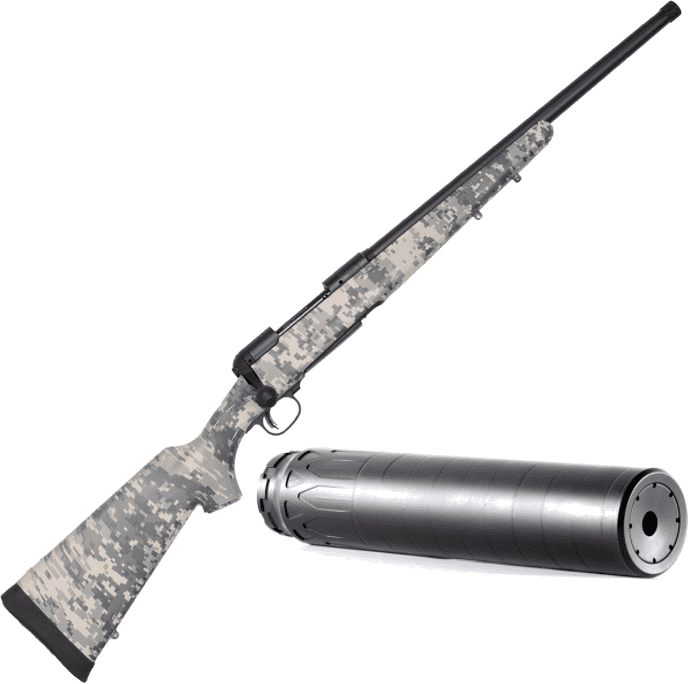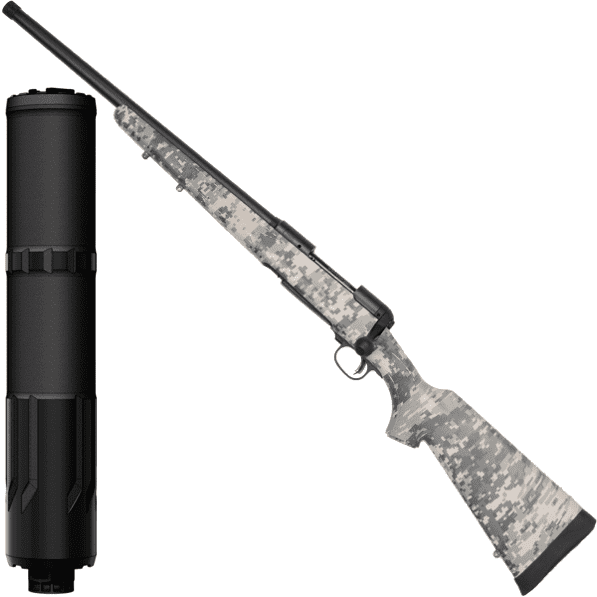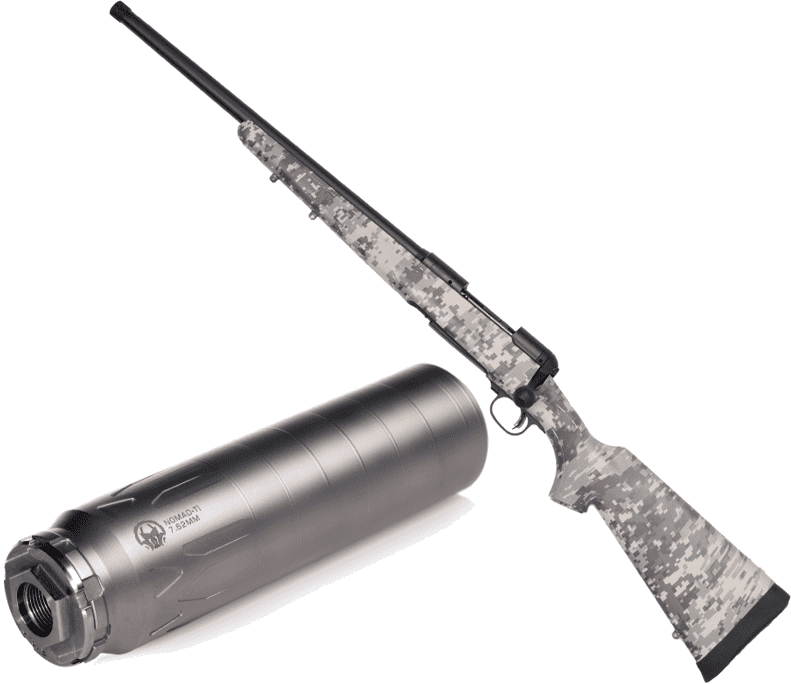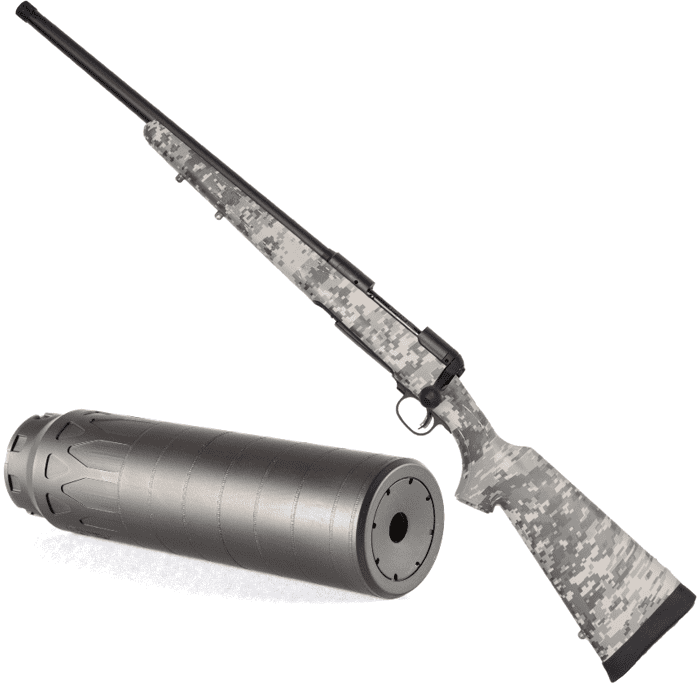Dude, walk with me for a second here - I think what you're not getting is that I'm objecting to the rampant generalizations you made in your statements. Let's look at this one in particular:
You're making a declaration that isn't supported by your own cited source. The source you cited didn't review Banish at all. Banish literally isn't on the list of reviews you used to support your statement that Banish isn't as good as other cans. Even if I conceded TBAC's rating of 5 out of 18 by Pew as being meaningfully convincing then half your argument is still entirely unsupported. That makes it a bad argument.
I pulled up your source, looked at their data, and came to the conclusion based on his presentation his own data that it's pretty irrelevant to meaningful discussion because it ignores significant factors that are common to suppressor applications. The score is apparently agnostic of any considerations other than sound, and he rates very obviously different applications on the same scale. I get what he's trying to do in synthesizing a uniform metric that applies to super versus subsonic, pistol versus rifle, bolt versus direct impingement, but the scale and relativity of intermixing the results on the list looks bogus to me, even if you can sort it. I'm not "salty" for disagreeing with his interpretations - his composite score isn't an authority you can appeal to counterbalance my own interpretation of the data or my dismissal of his factor weightings.
I'm sorry that I'm not taking your arguments as seriously as you want me to, I'll admit I'm being dismissive because what I'm reading amounts to you jumping in, saying "y'all are wrong", making a poor cite that doesn't even support your statement, and then listing out generalizations and opinions like they're facts. All over something so highly subjective that it borderline defies quantification.
I think you have started out with the misunderstanding of my original comment.
I gave pew science as a measure if 1 or 2 metrics. What does the original post say? There are better cans available with better performance, better FEATURES, and better PRICE POINTS..... Jay only covers 1 of those attributes. I literally dropped that so people will have a well made source to use to compare sound data instead of numbers companies claim. Nobody else supplies that kind of information, so that's why it's posted.
I don't understand how you jump to his findings are irrelevant because his focus is sound and gas performance. It's what people want to know about suppressors. Again, he focuses on sound and gas management, don't go there looking for meltdown testing. Don't go looking for some kind of accuracy measurement that would be virtually impossible and also a useless test in 2021. They are all precision made instruments in this day and age. You wouldn't go to the car dealership and say "they told us how fast the car accelerates but, they didn't tell us how fast it stops so that information is useless".
As far as the banish goes, it's a given how it's going to perform, it's been compared to other cans, but it's not a shining star. Is it a great can? Yes, is it listed in the best? No. It's been around and had name changes, it's not anything special, it's claim to fame is "user serviceable" and "shipped to your door". The awards they win are always poised with the question "well who did you compare it to?". Only magazines are handing out awards to SC, and SC is the only MFG advertising in hunting magazines (That I have seen). I look at those cans as buying a Form 1 can that has the same internals, a tube, and threaded endcaps. You could put together a duplicate for a fraction of the cost. No welded construction is what you can do at home. If I'm going to spend that kind of cash on something it's because I can't do it myself at home.
Now for features...... both TBAC and Banish will limit you to attachment options. With TBAC it's their CB or it's DT. Banish is DT only. Banish gold at a whopping $1700 MSRP allows you to have the DT that Silencer Central uses. The implied warranty is for manufactures defects, and mentions nothing else. TBAC says "will replace or repair any product manufactured by TBAC for the duration of this lifetime warranty." I would purchase a TBAC, might be my next can, but a Banish I can build from purchased radial cups and tubes for less than $900.
Please don't use the source of Pew science as to what I base my comparison on. Most of the top cans are DT only, but there are a few that offer features that allow the use of any mounting system you like. There are a few that don't offer "whatever" warranties, there are a few that have a full lifetime warranty. There are a few that cost more than the Banish 30. Again, this is why my original comment states: "There are better performing cans with better features for less cost than both of those." It even says in the post "if you are interested in numbers check out Pew Science"..... It can't get any clearer than that, and you can't say Jay's numbers don't convey what he is testing and the results.
You use this source for sound and gas management, then use your features YOU like, and then look at the price and determine what is the best can YOU can afford. This is a post about being on a budget. TBAC is not what I would recommend on a budget, neither is Banish. If you want to know how your budget can stacks up against known standards, the data is there for you. Hopefully the Banish will end up on Jay's list somewhere and we will have it compared to a standard.
What is subjective about data gathering? What is subjective about someone doing more than the industry standard and putting it all together and sharing it for free with the industry? This is why people hate for absolutely no reason, you can't understand the method if you come to your conclusion. It's simple, industry runs their cans and says "best in the world sound suppression", but as soon as someone starts to implement standard testing procedures all of a sudden we end up here. Idk if it's because people's chosen brands don't out perform other brands or the results don't come back to as good as they hope. One thing is for sure people always hop up and hate on the man who is doing what nobody else will. He literally offers a summary of data as a composite score, just like making a score card. He reports what the scorecard says, and weighs each metric. I'd love to see someone such as yourself start another program just to compare data to what he gets. Then you can make your own scorecard and we can all criticize it.




